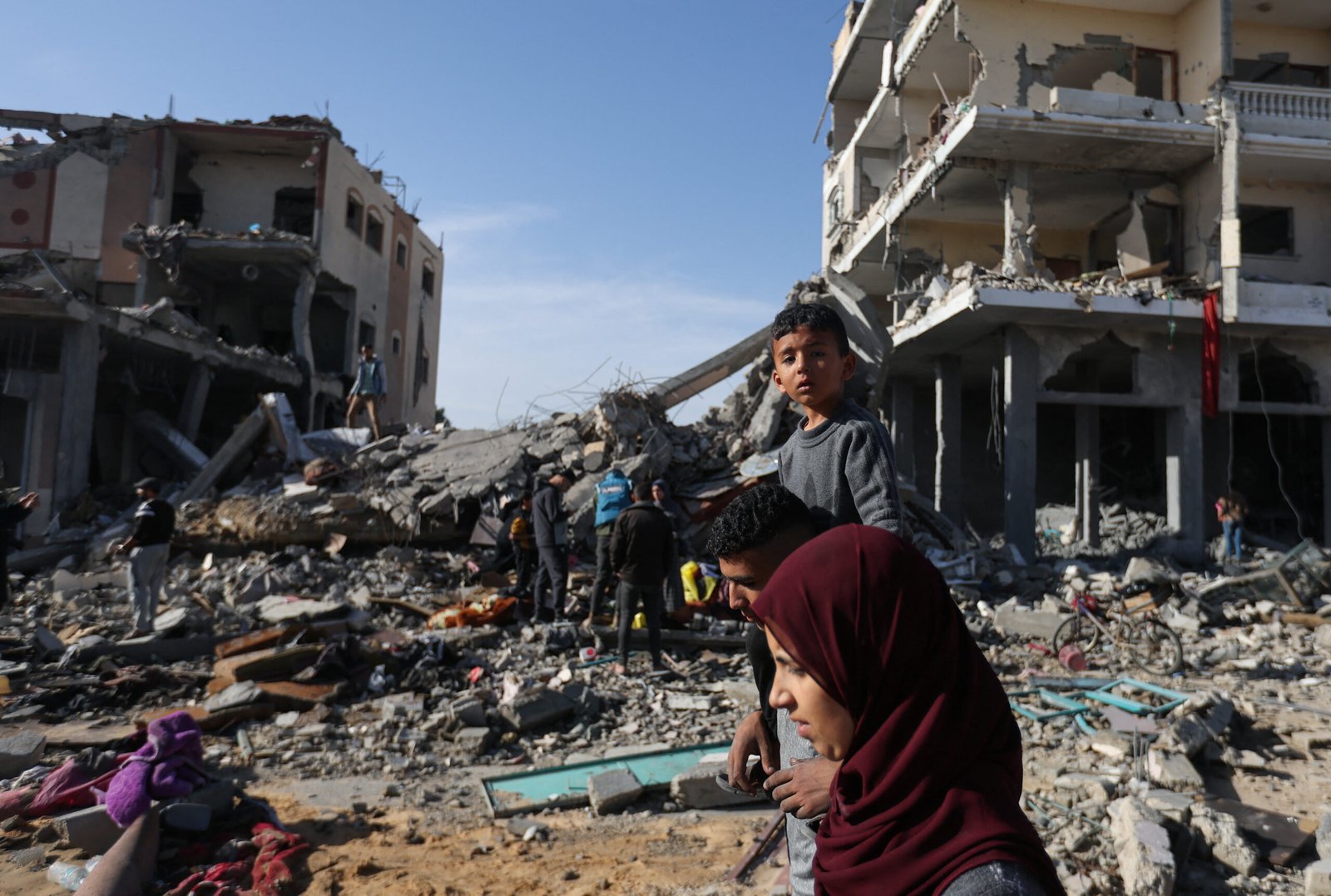Amid the ongoing conflict in Gaza, the story of Asmaa Ahmed giving birth in a makeshift setting exemplifies the dire humanitarian crisis gripping the region.
Ahmed, forced to flee her home due to Israeli bombardment, delivered her son Faraj in a Gaza City school devoid of electricity. With the aid of a doctor working by the light of a mobile phone and improvised medical supplies, the birth took place under perilous conditions.
The fear of losing her child loomed large for Ahmed, echoing the anxiety felt by many amidst the violence. Nurse Baraa Jaber, assisting in the delivery, shared similar apprehensions, compounded by the constant threat of airstrikes.
Ahead of International Women’s Day, aid workers and medics warn of the precarious situation faced by Gaza’s approximately 52,000 pregnant women amid the collapsed health system and ongoing conflict.
The challenges extend beyond childbirth, with new mothers struggling to ensure the survival of their infants amidst the scarcity of essential resources such as food, water, and medical equipment.
Malak Shabat, a pregnant woman seeking refuge in Rafah, epitomizes the pervasive fear among expectant mothers as they confront the uncertainties of childbirth in a conflict zone.
The devastation wrought by the conflict is evident in the decimated health system, with the UN reporting a severe shortage of functioning hospitals. Restricted aid convoys exacerbate the crisis, leaving many without access to essential medical supplies.
Samah al-Helou’s ordeal highlights the plight of pregnant women in Gaza, as she endured delays in receiving necessary medical care due to the overwhelmed healthcare facilities.
The dire situation forces women like al-Helou to give birth in inadequate conditions, exacerbating the risks to maternal and infant health. Despite the challenges, quick hospital discharges have become routine, leaving many mothers without proper postnatal care.
The lack of adequate facilities has pushed some women to give birth on unhygienic hospital floors or even in the streets, underscoring the severity of the humanitarian crisis.
Even before labor, pregnant women face compromised health due to wartime shortages, exacerbating risks for both mothers and infants. The prevalence of unsanitary conditions and severe food poverty further exacerbate the challenges faced by expectant mothers.
With Gaza’s population density and the absence of safe spaces, the situation has reached catastrophic levels for pregnant women, underscoring the urgent need for humanitarian intervention to alleviate their suffering.



